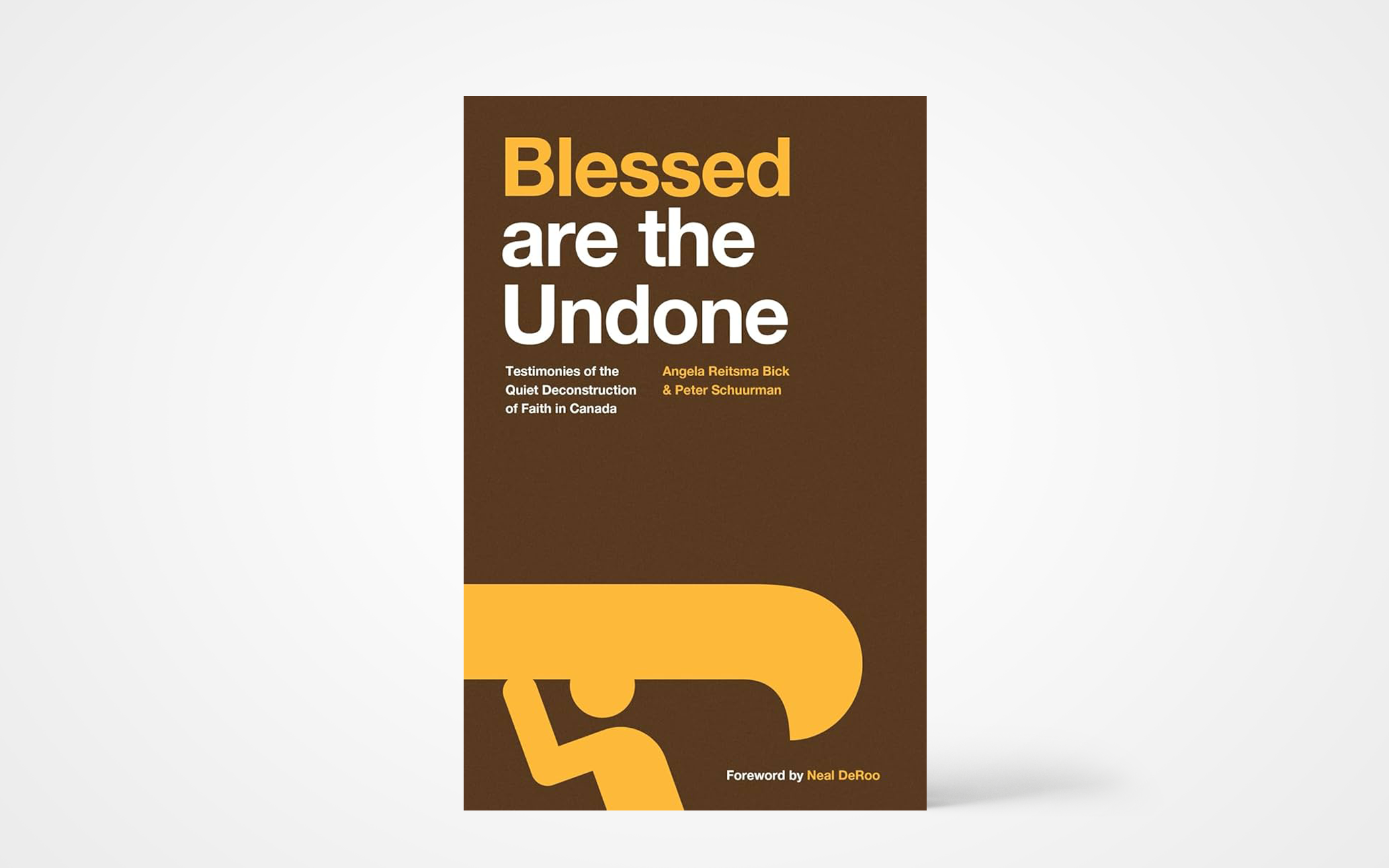Why are some Canadians currently deconstructing their Christian faith? Responses to this question shape this wise and winsome book by two born-and-bred members of the CRC in Canada.
There are two key things to know about this book. It is deeply Christian—written by two of our Christian siblings who interviewed 28 people (geographically, gender, and age diverse from 18 through 70+). These folks were “all in” concerning their Christian faith but have been “undone”’ by their experiences within conservative Christian communities. Second, it is distinctly Canadian—written by Canadians and about Canadians. So Canadians—this is us! Even so, it is a good read for Canada’s neighbors to the south who have had an overwhelming impact on Christianity in Canada, as evident in this book.
So what is “deconstruction” in this context? While many might think of deconstruction as sinful or destructive, the authors invite us to reconsider. After listening to these folks, they wonder if deconstruction is one result of the tension that builds when Christian principles seem at odds with observed practices. In that way, we could consider deconstruction to be a prophetic critique calling us to align our actions with our words. Using a portaging metaphor throughout the book, those deconstructing have lost faith—not faith in Jesus, but faith in their camp, so they are tearing down the campsite, packing up the best of what was there and moving on to build a new campsite.
What has brought about this deconstruction? The middle section of the book gathers the concerns of those interviewed into multiple chapters. For some, the Bible was treated as a book of inerrant answers fused with rigid interpretations, with no room for curious questions or alternate opinions. For instance, is “young earth” the only way to faithfully read the text? For others, deconstruction was catalyzed by the recognition that the church itself initiated terrible injustice—from the mistreatment of Indigenous Peoples to the perpetuation of clergy sexual abuse—and too often refuses to repent and reconcile. The authors reveal how Christian purity culture brought harm to some interviewed. For many, deconstruction began when white evangelicals were key to electing Donald Trump in 2016. And for even more—more than half of those interviewed—how Christians treated people from the LGBTQ+ community was a significant catalyst to becoming undone and breaking camp. As the authors note, some walk away with the hope that “things can be otherwise.”
If these folks are breaking camp to move on, where do they go? Many of those interviewed are breaking away from sheltered Christian communities. So leaving camp means entering an undiscovered country. One common discovery was the ancient church: the Lectionary, the Book of Common Prayer, sacraments and a sacramental life, 2,000 years of Christian faith lived out, and connections to deeper roots. Even more so, many reconnected with Jesus. While their church experiences had hurt them, Jesus still drew them close. They want a more Christ-like community, to be gathered with those who are clinging to Jesus and who are making room for others to do so, even amidst differences.
The authors do notice troubling trends among those deconstructing. One trend is how U.S.-shaped everything is. While many of these undone were often hurt by U.S.-shaped movements (i.e. Focus on the Family; Reasons to Believe; Answers in Genesis; etc.), their deconstruction is equally shaped by U.S.-shaped movements (i.e. Evolving Faith; The Liturgist; etc.). These U.S.-based deconstruction movements have troubling habits as well: disembodied (join online!), consumer-oriented (buy this!), and therapeutic individualism (be true to yourself!).
The best deconstruction moves toward reconstruction, according to the authors, and they imagine a more “made in Canada” response. Could Canadians refrain from imported polarization? Could they come together to shape a more open table of generous orthodoxy paired with a cruciform way of being—a “large bonfire where people from different sites come for warmth, light and fellowship”?
After all, God too was “undone at the cross so that, through the Spirit, the Church’s many mistakes are not the last word. They are instead an opportunity to be undone and then re-done, and on that hope we rest this book.”
About the Author
Paul Verhoef

